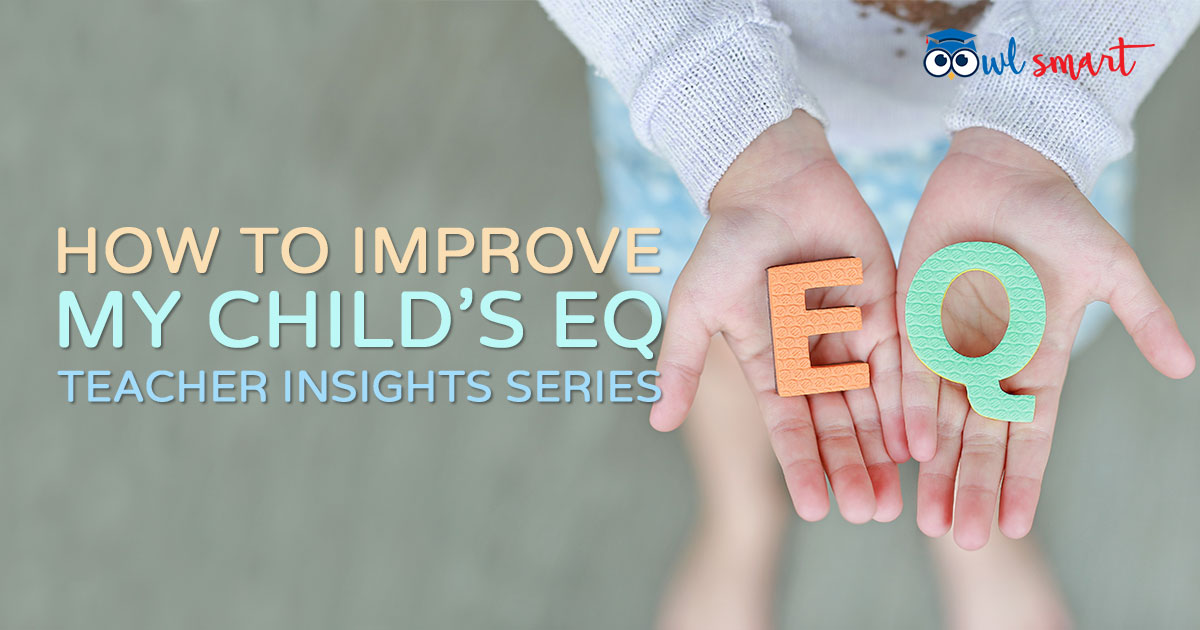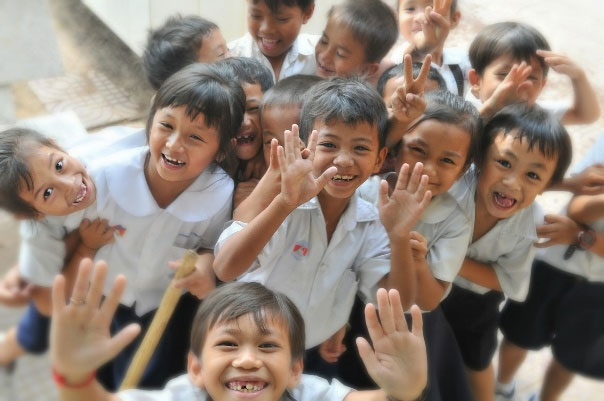
During parent-teacher meetings, parents are mainly concerned about two areas regarding their children – academic and social aspects. Other than how their children are coping during lesson time or with school work, parents also want to know how their kids are getting along with their peers. This in turn has got a lot to do with Emotional Quotient (EQ).
Hear from our educators, who have more than a decade of experience interacting with children, on what can be done or are being carried out in schools to help your child interact better with others.
Question 10: How can I help my child develop soft skills like EQ?
Teacher Chin
A key starting point is getting the child to realise that he or she does not live in isolation.
Being self-aware of one’s strengths, weaknesses and tendencies are important in ensuring that the child is able to reflect on his or her own actions and progress positively.
This also ensures that the child makes better decisions as he embarks on new activities and interacts with different people around him.
Teacher Zen
I am not an expert in this field. However, based on some research done on internet and my experience as a teacher among children, there are basically four attributes that can affect emotional quotient:
-
Self-management
Train your child how to manage stress and control his emotions. Learn how to assess own and others’ emotions.
When your child can control his emotions, he will be able to receive upsetting information and still act thoughtfully and appropriately.
In short, your child will be able to manage his emotions in constructive ways and adapt constructively to difficult circumstances.
-
Self-awareness
Help your child to know his own personality, including his strengths and weaknesses, his thoughts and beliefs, his emotions and what motivates him.
A child that has self-awareness will understand other people and detect how others perceive him more easily. In that way, he can make changes to his behaviour to adapt to the environment around him.
-
Social awareness
Help your child to recognise and interpret the cues (mainly nonverbal) people around are using to communicate with him. These cues let him know how others are really feeling and their emotional states.
Having social awareness helps your child to know the emotional changes in the people around him so that he can understand them better.
-
Relationship management
Once your child understands his own emotions and what kind of emotions people around are experiencing, he will be able to develop social skills that make effective relationships with others.
Teach your child to recognise the nonverbal messages that he sends to others so as to improve relationships with his peers.
You can also teach your child how to use positive humour and how to play/get along with other kids to relieve stress in relationships.
Note: These 4 domains of social and emotional skills, together with Responsible Decision Making, are actually taught within the Character and Citizenship Education (CCE) curriculum in all primary schools in Singapore. Collectively, they are termed as Social and Emotional Learning (SEL).

In summary, the learning outcomes of SEL is that every student will acquire skills, knowledge and dispositions to manage self and relationships effectively so that he/she can make responsible decisions essential for personal and social well-being.
Conclusion
Remember EQ is as important as IQ. It can affect a child’s performance at school, relationships with others, ability to handle stress and exams, physical and mental health, etc. In fact, it can determine if the child will grow up to have a successful career and have a fulfilling social life.
This is the last of 10 articles in the Teacher Insights Series. We hope you have benefited from the sharing. Thank you for reading!
About the Author
Prof Ollie is a guru of PSLE revision strategies specialising in the Leitner System and aims to help primary 6 students from all walks of life to excel in their PSLE. Despite being a professor, he wears his graduation hat wherever he goes. When not working on OwlSmart, Prof Ollie flies around Pulau Ubin to lose weight and catch up with the resident hornbills.



